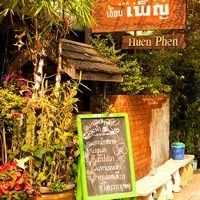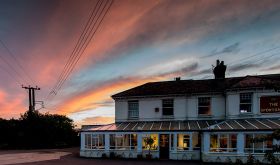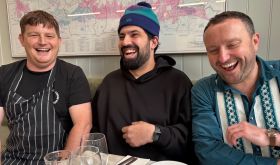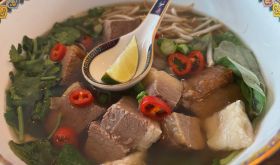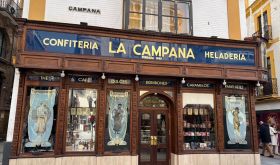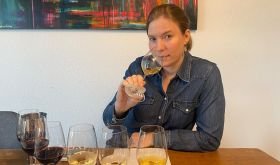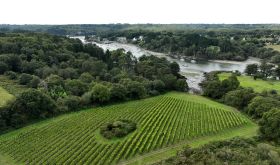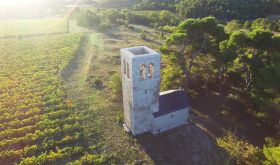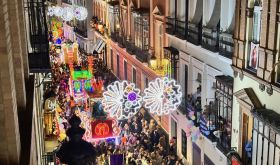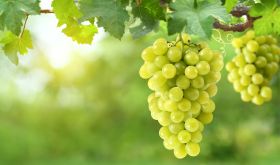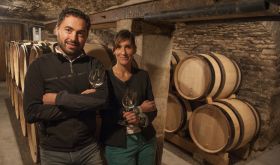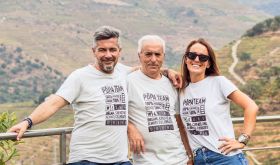That three of the world's top chefs – Heston Blumenthal from England, Daniel Boulud from New York and France's Pierre Gagnaire – were to be in the audience for my speech on the future of restaurants in hotels was a further inducement to accept the invitation to speak. The primary one, however, was that I was to do so in Chiang Mai, northern Thailand.
My enthusiasm was based on the memories of previous family trips to Thailand, where the colourful, hot and spicy food, whether at street cafes or in restaurants, as well as the invariably calming and refreshing fruit afterwards, have always been major attractions. More memorably perhaps was the added bonus of the friendliness of those who cook and serve this food across Thailand.
Thai food in the north is very different from that of the far south. It is even spicier. Fish is much less common, as is the coconut milk that mitigates the heat of so many southern Thai dishes. But northern Thai cooks have myriad ways with pork, chicken and vegetables, while the local spicy sausage, which I was to enjoy in salads, on skewers and in peppery soups, was a revelation.
So too, on this particular trip, was the sweetness of the local pomelo, like grapefruit but much juicier and less bitter, and used extensively in salads.
At the first coffee break, when I joined a table comprising Blumenthal, Philipp Knuepfer, a German hotelier based in Singapore, and Gianni Santin, a top Italian pastry chef now working in Las Vegas, I was to be introduced to other aspects of what makes eating and running restaurants in Thailand so exciting.
 Blumenthal promptly showed me a photo of his very first encounter with what is described locally as 'jungle caviar'. At a stall in the city's vibrant night market he had eaten an omelette filled with bee and ant eggs. 'Citrusy and with a hint of popcorn', was his tasting note, the popping sound, I subsequently learnt, because of the inherent difficulty in separating the eggs from the ants.
Blumenthal promptly showed me a photo of his very first encounter with what is described locally as 'jungle caviar'. At a stall in the city's vibrant night market he had eaten an omelette filled with bee and ant eggs. 'Citrusy and with a hint of popcorn', was his tasting note, the popping sound, I subsequently learnt, because of the inherent difficulty in separating the eggs from the ants. Knuepfer, now working in Singapore, where he had just sold all his last bottles of Château Lafite 1982 at 7,500 euros apiece to a table of Chinese who had been lucky at the nearby casino, described his peripatetic career. 'I learnt my skills in Europe and management and marketing techniques in the US. But it is only in Asia, and Thailand in particular, where I really feel we can put into practice the best service principles. I am not sure what it is here, perhaps because 95% of Thais are Buddhist, but they always want their customers to be happy'.
The experience of working in Thailand has left such a strong impression on Santin that he is planning to move back with his family. 'The cooks here are so enthusiastic. They don't take anything for granted and they are so keen to learn. It's not like that in the US.'
I was to enjoy these ingredients in two very different settings.
The first I owe to the local knowledge of Chiang Mai businessman and food and wine lover Phairoj Pinyosakul. As he drove us into the city centre, women along the way were setting out their food carts for the evening before we took a slight detour, en route for dinner at the restaurant Huen Phen, for a brief visit to Wat Chedi Luang ('grand pagoda'), a particularly atmospheric, semi-ruined Buddhist temple and associated school for apprentice Buddhist monks.
Huen Phen (pictured above left by Eric Isaac) is operated as a cafe by Poomjal Burusapat's mother during the day while he works as an administrator in a local hospital. At night he takes over, overseeing the extremely friendly, welcoming restaurant behind the cafe space in one of the grid of narrow streets that make up Chiang Mai's moated old town.
Although the menu is in English, Pinyosakul ordered for us: a salad of sausage with devilishly hot little green chillis and lime juice; another, less potent salad of green beans, long aubergine and chicken; pomelo salad with dried shrimp; a hot, pepper soup with assorted vegetables and shrimp; sticky rice, a staple that centuries ago had underpinned the city's economy; and a soothing dessert of bananas in condensed milk. There was more than enough food to emphasise one of Pinyosakul's principles of Thai hospitality, that you should eat until you drop. My bill for four came to £20.
Two days later in the late afternoon, I set off with Norbert Kostner, born in the Südtirol, Italy, but for the past 20 years executive chef at the Mandarin Oriental, Bangkok, on a precipitous drive into the mountains an hour north of Chiang Mai, past waterfalls and lush tropical vegetation.
When not in his kitchens, Kostner has played a major role in demonstrating how the demand for the best raw ingredients can lead to a more peaceful world.
At the instigation of the King of Thailand, the hill farmers in this region, whose main cash crop used to be opium, have been induced to switch to producing far less harmful, temperate fruits, vegetables and dairy products. While Kostner has set the quality standards, the farmers have been persuaded to follow this lead by the persausive example of His Serene Highness Prince Bhisadej Rajani, one of the King's many cousins and closest friends.
Rajani, 89, but with a ramrod back and a youthful sparkle in his eyes, was making one of his monthly visits to the region. Over a simple meal and a glass of French red wine, which he drinks daily on his doctor's orders, he recounted the transformation in the hill farmers' lives and how supplying restaurants far and wide has stabilised this beautiful, but once highly dangerous, region.
Huen Phen, 112 Rachamunka Road, tel: 0-5327-7103
Thailand's Royal Project, www.royalprojectthailand.com

